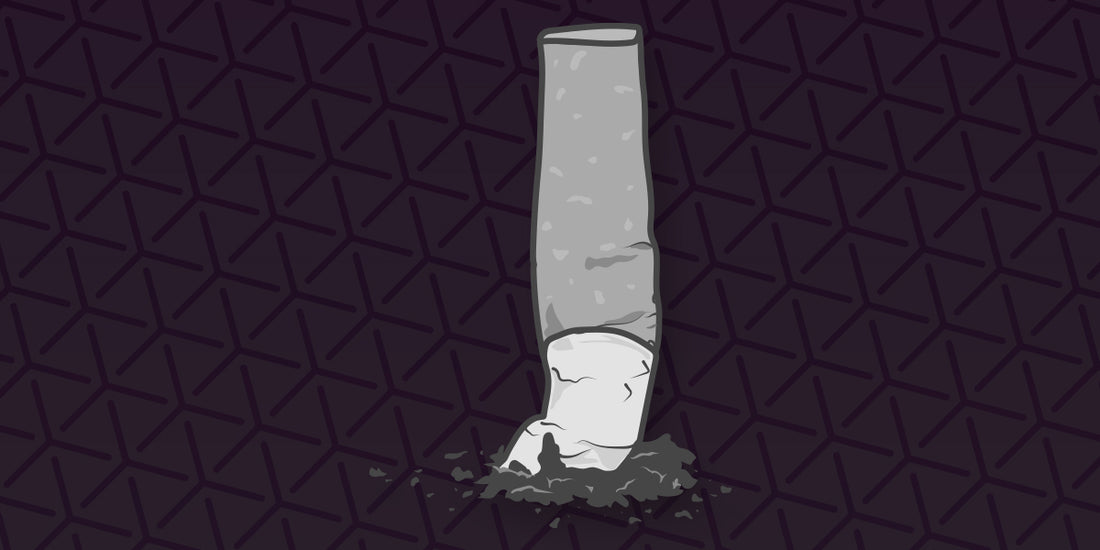




Learn More About Nicotine
-
-
Does nicotine cause cancer?
Nicotine is addictive and the primary reason that it is so difficult for smokers to quit. It is a drug, and no drug can be completely safe – particularly if taken continuously and in very high doses. However, most medical experts and scientific research point to cigarette smoke ('tar'), not nicotine, as being the primary contributor to cancer among smokers.
-
What is nicotine?
Nicotine is an alkaloid found in tobacco plants, where it is believed to act as a natural insect repellent, shielding the tobacco plants from insects and animals that may otherwise eat them. Nicotine is also present in tomatoes, potatoes, eggplants, green pepper and the cocoa plant – most likely for similar reasons.
When consumed by a human being nicotine acts as a stimulant which – among other things - causes our brain to release higher levels of dopamine. Dopamine is a neurotransmitter (chemical messenger) that when released gives us increased feelings of pleasure, reward, motivation and ability to pay attention / concentrate. It is these feelings of ‘well-being’ that contribute to making nicotine highly addictive.
-
Can 'using' nicotine help me quit smoking?
Yes. The vast majority of serious research into smoking cessation programmes and nicotine-based quitting products finds that the use of nicotine in a controlled manner is critical to successfully quitting smoking. Hence the many products now available in the market (gums, sprays, vaping devices, plasters, etc.). While the success rates of these products vary widely, we have every reason to believe that nicotine pouches can achieve very high rates of success - particularly given their benefits over vaping (see question 3 in All About Nicotine Pouches).
-
Is nicotine harmful?
Nicotine is addictive and the primary reason that it is so difficult for smokers to quit. It is a drug, and no drug can be completely safe – particularly if taken continuously in very high doses.
The half-time of nicotine is about 2 hours - meaning that after 2 hours 50% of the nicotine you have ingested has left your body (as a comparison the half-time of caffeine is up to 5 hours). This half-time means that after 8 hours (one night’s sleep for instance) only 6.25% of ingested nicotine remains in your body. After 24 hours only 0.02% - or in practical terms nothing - of your last ingested nicotine will remain in your body.
The relatively short halftime of nicotine may help explain why a smoker experiences withdrawal symptoms (a desire for another cigarette) an hour or two after their last cigarette.
-
Are there any side effects from nicotine?
As the nicotine is activated from the pouch you may feel a slight stinging sensation on the inside of your lips or on your gums. This normally passes quickly. The degree of the stinging sensation can be accentuated by the flavours you are using.
Try switching sides in your mouth or drinking a bit of water if you feel any discomfort from this stinging. If the feeling persists you may want to try a nicotine pouch with a lower nicotine content.
-
Is there a limit to how much nicotine I should consume in a day?
Consumption patterns are very individual so there is no hard and fast rule as to how much nicotine you should ingest in a day. Our recommendation is to never allow your consumption to reach levels where you may feel ill or uncomfortable.
If you consume nicotine pouches in rapid succession you may be ingesting too much nicotine. Signs of excessive nicotine ingestion include headaches, nausea, dizziness, dryness of the mouth and an elevated heart rate.
If you experience any of these symptoms we strongly recommend that you immediately discard your nicotine pouch and refrain from any nicotine ingestion for not less than 4 hours. This period of time should allow the nicotine levels in your body to dissipate to a level where you no longer feel any discomfort.
-
Does nicotine damage my gums?
Given that nicotine pouches are relatively new products we are unaware of any studies or research into the possible impact of nicotine pouches on your gums.
We strongly recommend that you discuss your intention to use nicotine pouches as an alternative to smoking and/or vaping with your dentist and/or doctor and follow any advice they may give you.
-
Who should NOT use nicotine?
We strongly believe that nicotine should only be used by informed adults that are seeking to quit smoking and/or vaping.
Nicotine is highly addictive and is NOT intended for use by kids or teenagers below the age of 18 - irrespective of whether or not they may be smokers.
Pregnant or breastfeeding women, people with heart disease, elevated blood pressure or diabetes should NOT use nicotine pouches.
-

